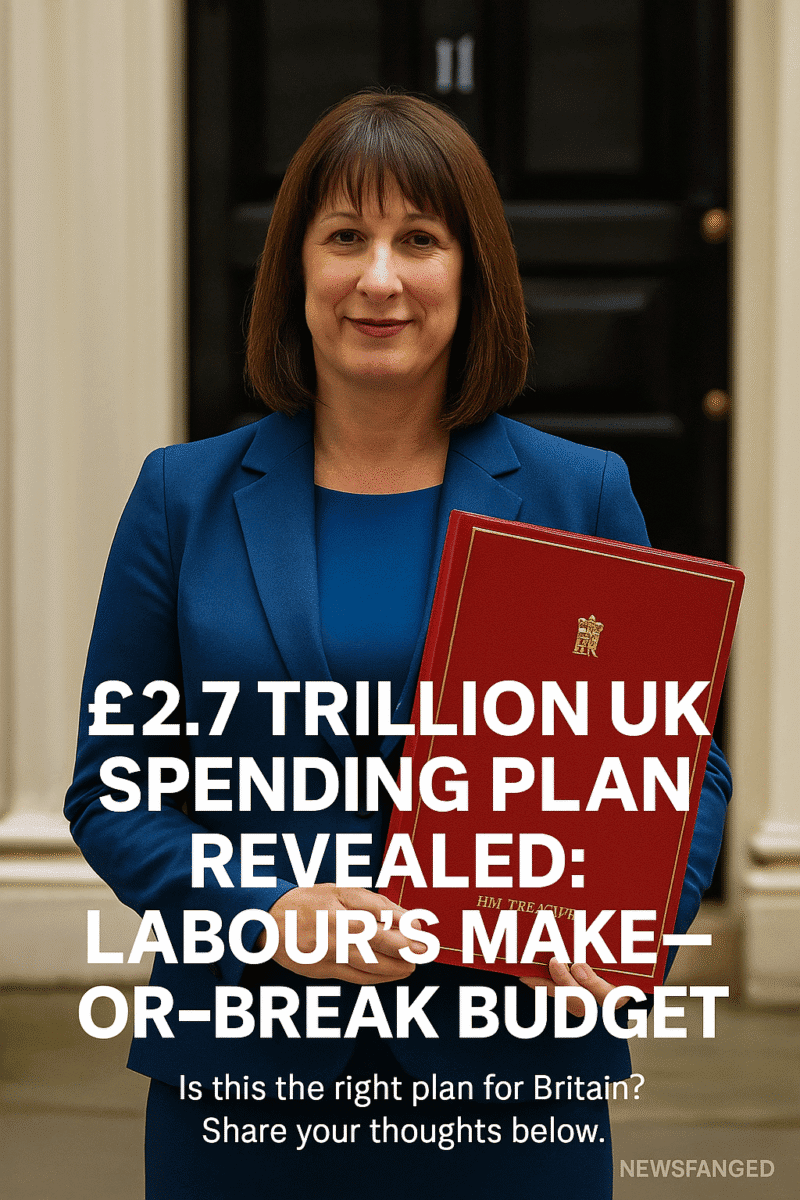Table of Contents
£2.7 Trillion UK Spending Plan – A New Fiscal Chapter for Britain
The UK government is preparing to roll out one of the most ambitious spending blueprints in modern political memory. Chancellor Rachel Reeves is poised to unveil a £2.7 trillion UK spending plan that could shape the nation’s economic direction for the rest of the decade. It’s a high-stakes move from Labour, which now holds the reins of power and must prove that progressive ambition can be matched by pragmatic delivery.
Scheduled to be announced during a special parliamentary session on Monday, the multi-trillion-pound plan promises sweeping investments in green infrastructure, public services, and long-neglected sectors.
What We Know So Far
While the full details remain tightly held ahead of the official release, sources close to the Treasury have hinted at the following core pillars:
- Green Growth: Substantial investment in wind and solar energy, aimed at achieving energy independence by 2030. This includes retrofitting homes and developing a national grid overhaul.
- Health and Social Care: A multibillion-pound expansion of NHS facilities, with promises to tackle waiting lists and workforce shortages. Social care reforms are also expected to take shape.
- Education Reform: Increased funding for primary and secondary schools, as well as further education colleges. Teacher recruitment incentives and mental health support in schools are on the cards.
- Housing and Infrastructure: The plan includes billions earmarked for affordable housing projects, road improvements, and public transport expansion in both rural and urban areas.
Labour’s First Big Test
For Rachel Reeves, this is more than just a budget—it’s a first impression. The former Bank of England economist is acutely aware that markets, media, and the British public will be dissecting every decimal point.
Labour supporters are touting the plan as a bold course correction after years of Conservative austerity, while sceptics worry about the long-term impact on national debt and inflation.
Reeves is expected to counter those fears by emphasising fiscal responsibility. Reports suggest new revenue will be sourced through windfall taxes on energy giants, digital service levies on tech firms, and a clampdown on corporate tax avoidance. Whether that will be enough to balance the books remains to be seen.
Public Reaction: Cautious Optimism or Quiet Panic?
Initial reaction among analysts is mixed. Some praise the sheer ambition of the plan, while others question whether the delivery mechanisms—especially with civil service cuts still fresh—are realistic.
Small business leaders have expressed cautious optimism, especially around infrastructure spending that could benefit regional economies. But unions remain watchful, particularly around NHS pay reforms and public sector job security.
One economist summed it up neatly: “If Labour pulls this off, it could redefine how government interacts with the economy. If they don’t, they’ll be remembered for over-promising and under-delivering.”
The Bigger Picture
Beyond the headlines, this UK spending plan is a statement of intent. It signals Labour’s desire to not just govern, but to transform—economically, socially, and environmentally.
Whether the public will buy into that vision will depend not just on the numbers announced, but on the outcomes delivered. £2.7 trillion is a lot to promise. Now the hard part begins: proving it was worth it.
Newsfangled wants to hear your Comments
Is this the bold move Britain needs, or an economic gamble too far?
Do you trust Labour to spend wisely? What would you prioritise in a £2.7 trillion budget? Join the discussion below.


We want to hear your what you have to say